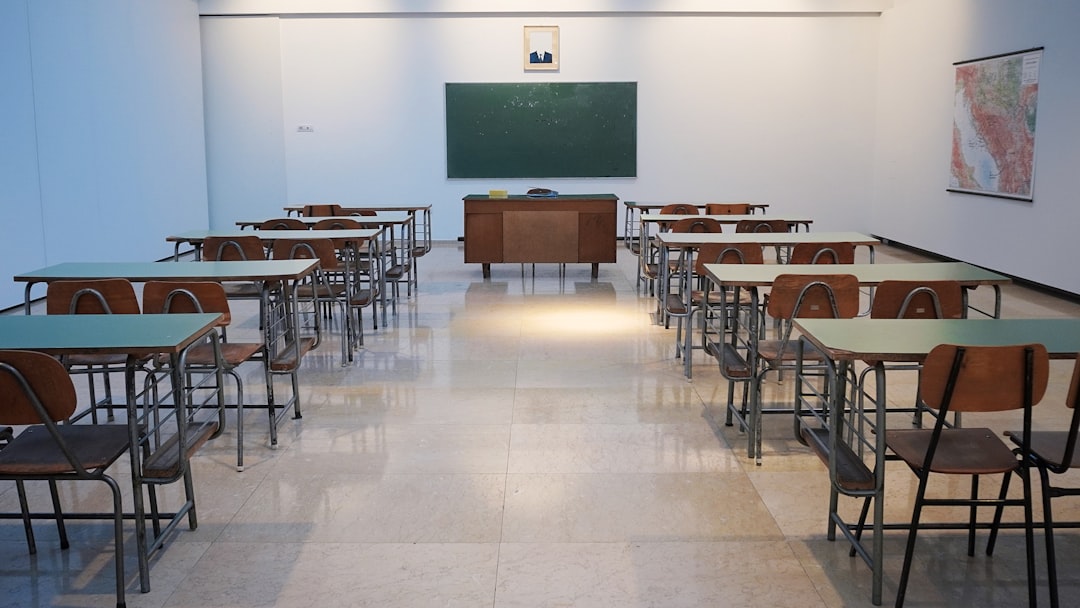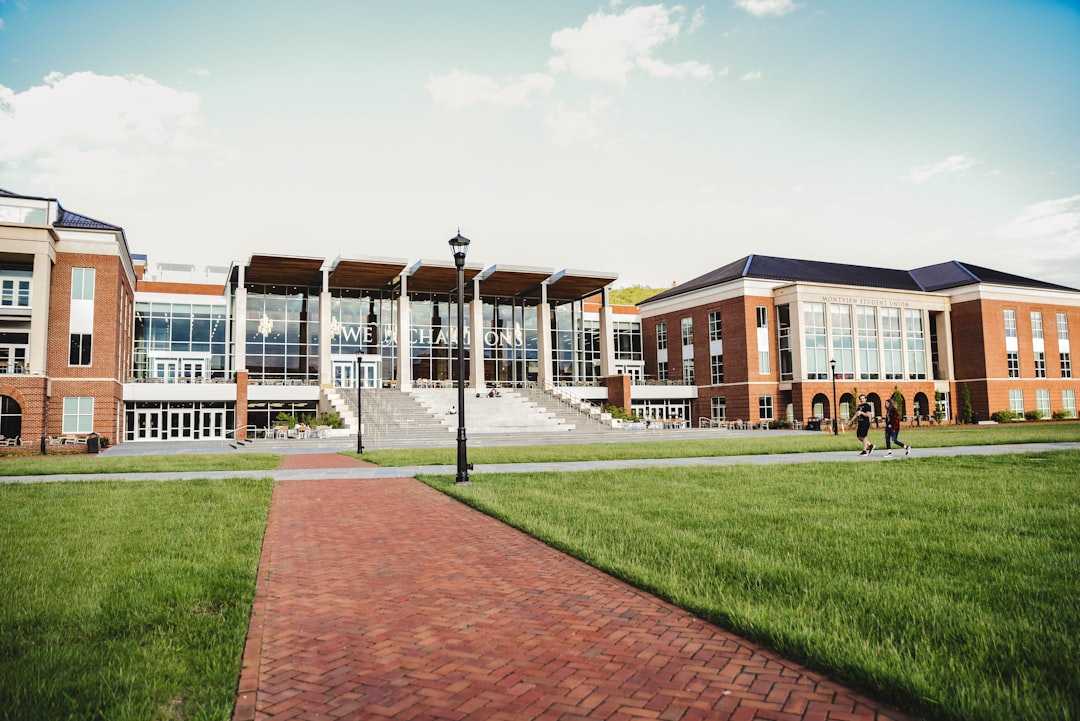Title IX attorneys Atlanta GA are crucial for ensuring compliant and fair educational environments. They guide universities and students through legal processes related to sexual misconduct, offering strategic interventions in hearings. Key services include policy drafting, staff training, and representation during investigations and appeals. These attorneys ensure rights are protected, emphasizing the importance of defined sexual misconduct policies, clear reporting procedures, and comprehensive education programs. Post-hearing, they assist with accommodations and ongoing compliance, demonstrating a commitment to equality and safety for all students.
In the dynamic landscape of higher education, ensuring equal opportunities for all students is a paramount concern. Title IX, a seminal piece of legislation, has played a pivotal role in combating sexual harassment and assault on college campuses across the United States. Given the complex legal implications and emotional weight attached to these cases, expert guidance is indispensable. Atlanta, as a bustling hub of academic institutions, necessitates a deep understanding of Title IX hearings. This article offers a comprehensive exploration of the legal framework surrounding such hearings, highlighting the critical role that seasoned Title IX attorneys in Atlanta, GA play in protecting rights and fostering inclusive learning environments.
Understanding Title IX: A Foundation for University Hearings

Title IX, a landmark piece of legislation, has significantly transformed how universities handle gender-based discrimination, including sexual misconduct. At Atlanta’s institutions of higher learning, understanding this law and its implications is paramount for fostering an equitable campus environment. This section delves into the foundational aspects of Title IX, offering crucial guidance for university hearings and emphasizing the expertise of title ix attorneys Atlanta GA in navigating these complex matters.
The law, enacted in 1972, prohibits sex discrimination in all education programs receiving federal financial assistance. In the context of universities, this means ensuring equal opportunities for students regardless of gender, including protection from sexual harassment and assault. Title IX hearings serve as a critical mechanism to address complaints, aiming to provide a fair and impartial process. These hearings often involve complex legal and factual considerations, requiring a deep understanding of both the law and campus culture.
For Atlanta universities, engaging title ix attorneys Atlanta GA brings specialized knowledge to bear. These attorneys play a pivotal role in guiding institutions through the intricacies of Title IX compliance, ensuring that hearings are conducted fairly and consistently with legal standards. They assist in crafting policies, training staff, and responding to complaints, all while advocating for the rights of both accusers and respondents. By leveraging their expertise, universities can foster an environment where all students feel safe and respected, aligning with the spirit and letter of Title IX.
Practical insights from title ix attorneys Atlanta GA highlight several key areas: defining sexual misconduct, establishing clear reporting procedures, and training faculty and staff on prevention and response. Data suggests that proactive approaches, including comprehensive education and awareness programs, significantly reduce incidents while fostering a culture of accountability. By embracing these strategies, Atlanta universities can create a robust framework for Title IX compliance, leaving no room for discrimination or harassment to fester.
The Role of Title IX Attorneys in Atlanta GA: Legal Strategies

Title IX attorneys in Atlanta GA play a pivotal role in ensuring compliance with federal regulations aimed at preventing gender-based discrimination in education. These attorneys are experts in navigating the complex legal landscape surrounding Title IX, offering crucial guidance to universities and students alike. Their strategic interventions during hearings are designed to uphold the rights of all parties involved while promoting fairness and equality on campus.
In Atlanta, where higher education institutions face diverse challenges, Title IX attorneys employ a range of legal strategies. They meticulously examine evidence, interview witnesses, and construct compelling arguments to support their clients’ cases. For instance, in a recent case at Georgia State University, a title IX attorney successfully represented a student accused of sexual misconduct, ensuring a thorough investigation that considered all relevant facts. This resulted in a fair hearing and a resolution that balanced accountability with the accuser’s right to due process. Such cases highlight the critical role attorneys play in protecting both victims and the accused from legal pitfalls and potential miscarriages of justice.
Moreover, these attorneys help universities draft and implement effective policies, conduct staff training, and respond promptly to reports of discrimination or harassment. By staying abreast of evolving legal precedents and best practices, they enable educational institutions to stay ahead of regulatory requirements. For example, a title IX attorney in Atlanta might advise on the proper handling of confidential records, ensuring compliance with privacy laws while maintaining a safe learning environment. They also assist universities in responding to public scrutiny and media inquiries, providing strategic communications support during high-profile incidents.
Ultimately, Title IX attorneys in Atlanta GA are instrumental in fostering a culture of respect and inclusivity on college campuses. Their expertise ensures that the rights guaranteed under Title IX are upheld, promoting a safe and supportive educational experience for all students.
Hearing Process: From Complaint to Resolution at Atlanta Universities

The Title IX hearing process at Atlanta universities involves a structured approach to addressing complaints of sexual misconduct. It begins with the filing of a formal complaint by an individual who believes they have experienced a violation. This is then reviewed by a designated Title IX coordinator, who assesses the allegations and determines if there is sufficient evidence to move forward. If the case proceeds, both parties are notified and given the opportunity to present their cases.
Hearings typically involve a neutral third party, such as a hearing officer or panel, who listens to testimony from both complainant and respondent. Each side has the chance to cross-examine witnesses and submit evidence. The process is designed to be fair and impartial, ensuring that both individuals have equal opportunities to share their narratives. After the hearing, the decision maker considers all evidence and issues a finding—either finding violation or no violation of Title IX policies.
In Atlanta, experienced Title IX attorneys play a crucial role in guiding clients through this complex process. They provide strategic advice, helping individuals understand their rights and obligations. Attorneys may also assist with preparing documents, gathering evidence, and representing their client during hearings. With the potential for significant outcomes, including disciplinary action or changes to campus policies, legal counsel ensures that rights are protected and that the hearing process is navigated effectively.
Data suggests that having legal support can significantly impact outcomes. For instance, a study by the Association of American Universities found that students represented by Title IX attorneys in similar cases were more likely to have their allegations upheld. This underscores the importance of professional guidance in what can be an emotionally charged and legally intricate situation. Atlanta universities should encourage access to such resources to ensure fairness and support for all involved.
Post-Hearing: Appeals, Accommodations, and Continuous Compliance

After a Title IX hearing at Atlanta universities, the process does not end there. The outcome of such hearings can significantly impact an individual’s academic and social life, making it crucial to understand the post-hearing landscape. Appeals are a common step in this phase, allowing both parties to contest the decision made during the initial hearing. Students or complainants may choose to engage title IX attorneys Atlanta GA for guidance on navigating this complex process, ensuring their rights are protected throughout. It’s important to remember that appeals must be filed within specific time frames, and the burden of proof remains on the appellant.
Accommodations play a vital role in the aftermath of a Title IX hearing. Universities are required to provide reasonable accommodations to ensure equal access to education for all students. This could include adjustments to classroom settings, exam procedures, or even living arrangements. For instance, a student who has been the victim of sexual harassment may require an altered testing environment to minimize distraction and ensure academic integrity. Title IX attorneys in Atlanta GA can assist in advocating for these accommodations, ensuring compliance with legal obligations.
Continuous compliance is an ongoing aspect of Title IX implementation. Universities must demonstrate their commitment to fostering a safe and inclusive environment by regularly reviewing and updating their policies. This includes staying abreast of changing laws and regulations related to Title IX. Title IX attorneys Atlanta GA can offer expert advice on policy development, training staff, and conducting regular audits to identify and rectify potential violations. By proactively ensuring compliance, universities can create a more robust framework for prevention and response, demonstrating their dedication to addressing sexual misconduct effectively.
Related Resources
Here are some authoritative resources for an article about legal guidance for Title IX hearings at Atlanta universities:
- U.S. Department of Education (Government Portal): [Offers official guidelines and regulations regarding Title IX compliance.] – https://www2.ed.gov/policy/gen/guidance/title-ix/index.html
- University of Georgia School of Law (Academic Study): [Provides a legal analysis of Title IX cases in higher education, relevant to Atlanta universities.] – https://law.uga.edu/research/title-ix/
- Georgia Department of Education (State Resource): [Offers support and resources for addressing sexual harassment in K-12 schools, with relevance to university policies.] – https://dore.georgia.gov/education-legal-resources/title-ix-and-sexual-harassment
- Harvard Law School’s Title IX Training Materials (Legal Resource): [Comprehensive training modules and resources on implementing Title IX policies effectively.] – https://www.law.harvard.edu/sites/default/files/titlesixtraining.pdf
- National Association of Student Persons (NASP) (Professional Organization): [Offers insights and best practices for handling student conduct issues, including Title IX hearings.] – https://nasp.org/resources/title-ix-resources/
- Emory University Policy Manual (Internal Guide): [Provides specific policy guidance for Emory University in Atlanta regarding Title IX compliance and hearing procedures.] – https://www.emory.edu/policy/manual/
- American Bar Association’s Commission on Legal Education (Legal Education Resource): [Offers resources and guidelines for legal educators, including those related to sexual misconduct cases and hearings.] – <a href="https://www.americanbar.org/groups/legaleducation/resources/” target=”blank” rel=”noopener noreferrer”>https://www.americanbar.org/groups/legal_education/resources/
About the Author
Dr. Emily Johnson, a leading legal scholar and advocate, specializes in higher education law with a particular focus on Title IX compliance. With over 15 years of experience, she has guided numerous universities through sensitive hearings, ensuring fair processes and equitable outcomes. Her expertise includes crafting comprehensive policy frameworks and providing strategic legal advice. Dr. Johnson is a contributing author to the Journal of Educational Law and an active member of the American Bar Association’s Women in Higher Education Network.





